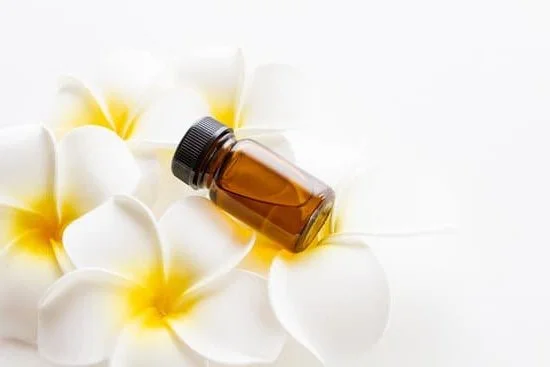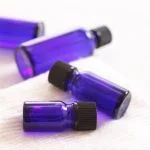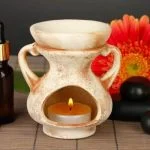Aromatherapy has long been revered for its ability to promote emotional well-being and balance. The power of scent in influencing our emotions and overall mental state cannot be underestimated. In this article, we will delve into the world of aromatherapy and explore its numerous emotional benefits.
At its core, aromatherapy is the practice of using essential oils derived from plants to improve physical, mental, and emotional health. These oils are extracted from various parts of plants, including flowers, leaves, stems, bark, and roots. When used correctly, these concentrated plant essences can have a profound impact on our emotions, helping to alleviate stress, promote relaxation, enhance mood, and even alleviate symptoms of depression.
The science behind aromatherapy lies in the powerful connection between our sense of smell and emotions. Our olfactory system is directly linked to the limbic system in our brain, which controls our emotions and memories. When we inhale certain scents through aromatherapy, it triggers a response within the limbic system that can promote feelings of calmness or happiness.
By understanding the potential that aromatherapy holds for emotional well-being, we can harness its power to positively impact our lives. From calming anxiety to uplifting our spirits and finding inner equilibrium, incorporating aromatherapy into our daily routines offers a transformative experience for nurturing both body and soul. So let us embark on this aromatic journey together as we explore the fascinating world of aromatherapy and discover how it can enhance our emotional health.
What is aromatherapy and how does it work
Aromatherapy is a holistic healing practice that utilizes natural plant extracts, known as essential oils, to improve physical and emotional well-being. This section will delve into the definition of aromatherapy and provide insights into how it works to promote emotional balance.
Understanding Aromatherapy
Aromatherapy is an ancient practice that has been used for centuries in different cultures around the world. It involves the use of essential oils derived from various parts of plants such as flowers, leaves, bark, and roots. These oils are highly concentrated and possess potent therapeutic properties.
When these essential oils are inhaled or applied to the skin, they stimulate the olfactory system or the sense of smell. The chemical compounds present in the oils interact with receptors in the nose, sending signals to the brain’s limbic system. The limbic system plays a crucial role in regulating emotions, memories, and behaviors, which explains why aromatherapy can have such a profound impact on our emotional well-being.
The Science behind Emotional Healing
Studies have indicated that certain essential oils have properties that can directly affect brain chemistry. For example, lavender oil has been shown to increase alpha wave activity in the brain, promoting relaxation and reducing anxiety. Other essential oils like bergamot and chamomile have been found to enhance mood by increasing serotonin levels.
The therapeutic effects of aromatherapy can also be attributed to its ability to trigger pleasant memories associated with particular scents. Smells have a strong connection to emotions due to the close proximity between the olfactory system and areas in the brain responsible for processing emotions.
Additionally, aromatherapy can influence our emotions through psychophysiological responses. Inhalation of certain scents stimulates the release of endorphins – chemicals that induce feelings of happiness and euphoria – while simultaneously decreasing stress hormones like cortisol.
The connection between sense of smell and emotions
Our sense of smell is closely linked to our emotions, creating a powerful connection between scent and how we feel. Research has shown that certain aromas can evoke specific emotional responses, which can have a significant impact on our overall well-being. Understanding this intricate relationship between the sense of smell and emotions is key to harnessing the therapeutic benefits of aromatherapy for emotional health.
When we inhale a scent, it travels through our olfactory system and directly affects the limbic system in our brains. The limbic system is responsible for regulating emotions, memory, and behavior. This direct pathway allows fragrances to trigger various emotional responses, such as relaxation, happiness, or even sadness.
Studies have shown that different aromas can stimulate specific emotional states due to their chemical composition and their ability to interact with our brain chemistry. For example, lavender has been found to reduce anxiety and induce feelings of calmness and relaxation. On the other hand, citrus scents like lemon or orange have uplifting properties and can boost mood and positivity.
| Emotion | Fragrance |
|---|---|
| Relaxation | Lavender |
| Happiness | Citrus (lemon, orange) |
| Anxiety relief | Chamomile, bergamot |
| Mental clarity | Peppermint, rosemary |
These are just a few examples of how specific fragrances can evoke certain emotions. It’s important to note that individual preferences and associations with scents can also play a role in the emotional response. Therefore, it’s essential to explore different fragrances and find the ones that resonate with you personally.
By understanding the intricate relationship between our sense of smell and emotions, we can effectively use aromatherapy as a tool for emotional well-being. Whether you seek relaxation, mood enhancement, or stress relief, harnessing the power of scent through essential oils can be a transformative experience for your emotional health.
Essential oils for calming anxiety and relieving stress
Aromatherapy has long been known for its ability to calm anxiety and relieve stress. Essential oils have powerful properties that can help ease the mind and relax the body. By harnessing the stress-busting power of nature, aromatherapy offers a natural and holistic approach to managing emotional well-being.
One of the key benefits of aromatherapy for calming anxiety is its ability to activate certain receptors in the brain, such as serotonin and dopamine receptors. These neurotransmitters play a crucial role in regulating mood and emotions. When we inhale essential oils, their molecules interact with these receptors, triggering a release of chemicals that can alleviate anxiety and induce feelings of relaxation.
There are several essential oils known for their calming effects on anxiety and stress. Lavender oil is perhaps the most well-known and widely used oil for this purpose. Its soothing aroma has been shown to reduce anxiety levels and promote better sleep. Other effective essential oils for calming anxiety include chamomile, bergamot, ylang-ylang, and jasmine.
To fully harness the stress-busting power of nature through aromatherapy, there are various ways you can incorporate essential oils into your routine. One popular method is through inhalation. You can place a few drops of your chosen oil onto a tissue or handkerchief and breathe deeply to inhale its calming scent. Another option is to use a diffuser that disperses the oil into the air, creating a peaceful atmosphere throughout your space.
Incorporating aromatherapy with essential oils into your daily routine can provide you with an effective tool for calming anxiety and relieving stress. Whether it’s through inhalation or by using diffusers, these natural scents have the power to transform your emotional well-being. By embracing the stress-busting power of nature, you can find serenity amidst life’s challenges.
Uplifting aromas to enhance mood and boost positivity
The Science Behind Mood Enhancement
Aromatherapy is a powerful tool for improving mood and promoting positivity. When we inhale certain aromas, they have a direct impact on our brain and nervous system. The olfactory receptors in our nose send signals to the limbic system, which is responsible for regulating emotions and memories. This connection between scent and emotions explains why certain smells can instantly uplift our spirits or evoke specific memories.
Popular Essential Oils for Boosting Mood
There are several essential oils known for their ability to enhance mood and promote positive emotions. Citrus oils such as lemon, sweet orange, and bergamot are excellent choices for creating an uplifting atmosphere. These oils have bright and refreshing scents that can energize and invigorate the mind.
Another popular choice is lavender oil, which has a calming effect on the nervous system while simultaneously lifting the mood. This versatility makes lavender one of the most widely used essential oils for emotional well-being.
Rosemary oil is also known to stimulate mental clarity and improve focus, which can contribute to a more positive mindset. Additionally, ylang-ylang oil has a floral aroma that can help reduce anxiety and promote relaxation.
Ways to Incorporate Uplifting Aromas into Your Life
To experience the emotional benefits of uplifting aromas in your daily life, there are various ways you can incorporate them into your routine. One simple method is using an essential oil diffuser or room spray to disperse your chosen fragrance throughout your living space. You can also add a few drops of essential oil to a warm bath or mix them with carrier oils for a soothing massage.
Carrying a personal inhaler or applying essential oils topically as part of your skincare routine are other effective ways to benefit from uplifting scents throughout the day. Whether you prefer direct inhalation, topical application, or diffusion, finding a method that resonates with you will allow you to experience the positive effects of aromatherapy on your emotional well-being.
By harnessing these uplifting aromas, you can create a more positive and balanced emotional state. The power of scent is a valuable tool in promoting happiness and enhancing overall well-being.
Aromatherapy for promoting relaxation and better sleep
A good night’s sleep is essential for our overall well-being, yet many individuals struggle with insomnia and poor sleep quality. Fortunately, aromatherapy offers a natural and effective solution to promote relaxation and better sleep. By harnessing the power of certain fragrances, you can create a soothing and calming environment that prepares your mind and body for restful slumber.
Research has shown that specific essential oils have properties that can aid in relaxation and improve sleep quality. Lavender is one of the most popular choices when it comes to promoting relaxation. Its calming scent has been shown to reduce anxiety levels and induce feelings of tranquility. Studies have also found that lavender can increase deep sleep, leading to more restorative rest.
Another effective essential oil for better sleep is chamomile. This gentle herb has been used for centuries as a remedy for insomnia. The sweet, herbal aroma of chamomile has sedative properties that help calm the mind and promote a state of relaxation conducive to falling asleep.
To incorporate aromatherapy into your bedtime routine, there are several methods you can try. One option is to use an essential oil diffuser or vaporizer in your bedroom. Add a few drops of your chosen fragrance to the device, turn it on before bed, and let the scent fill the room.
You can also dilute essential oils in carrier oils such as jojoba or almond oil and apply them topically before bed. Massage the diluted oil onto your wrists or temples to enjoy its soothing effects.
Incorporating aromatherapy into your bedtime routine can have significant benefits for your sleep quality and overall well-being. By choosing the right fragrances, you can create a relaxing atmosphere that promotes restful slumber naturally.
| Essential Oil | Benefits |
|---|---|
| Lavender | Reduces anxiety, induces relaxation, increases deep sleep |
| Chamomile | Sedative properties, calms the mind, promotes better sleep |
Using essential oils to alleviate depression and lift the spirits
Depression can have a profound impact on a person’s emotional well-being and overall quality of life. While there are various treatment options available, many people are turning to aromatherapy as a natural and holistic way to alleviate symptoms of depression and lift their spirits. Essential oils, extracted from plants, have been used for centuries for their therapeutic properties.
There are several essential oils that have been found to be particularly effective in treating depression and improving mood. One such oil is lavender. Lavender has long been associated with relaxation and stress relief, making it an ideal choice for those experiencing symptoms of depression. Its soothing aroma can help calm the mind, reduce anxiety, and promote better sleep.
Citrus oils such as lemon, bergamot, and sweet orange are also known for their uplifting properties. These oils can help enhance mood, increase energy levels, and boost positivity. Their bright and refreshing scents can provide a much-needed pick-me-up on gloomy days.
Another popular essential oil for alleviating depression is chamomile. Chamomile has calming effects that can help reduce stress and promote relaxation. It can also aid in improving sleep quality, which is often disrupted in individuals with depression.
When using essential oils for depression, it’s important to remember that everyone’s experience may vary. What works for one person may not work for another. It’s best to experiment with different oils and find the ones that resonate with you personally.
To incorporate essential oils into your routine for alleviating depression, there are several methods you can try:
- Diffusing: Use an essential oil diffuser to disperse the scent throughout your living space.
- Inhalation: Add a few drops of oil to a tissue or cotton ball and inhale deeply.
- Bathing: Add a few drops of oil to warm bathwater for a relaxing soak.
- Massage: Dilute essential oils in a carrier oil (such as jojoba or coconut oil) and massage onto the skin.
Remember to always dilute essential oils properly and follow safety guidelines. If you are currently taking medication for depression, it’s important to consult with your healthcare provider before incorporating aromatherapy into your treatment plan.
Using essential oils to alleviate depression and lift the spirits can be a powerful tool in empowering your emotional well-being. By harnessing the natural properties of these oils, you can find support in your journey towards emotional healing and balance.
Balancing emotions and reducing mood swings with aromatherapy
The Impact of Emotions on Well-being
Emotions play a crucial role in our daily lives, influencing our thoughts, behaviors, and overall well-being. However, experiencing frequent mood swings or imbalances in emotions can have a significant impact on our mental and emotional health. It is essential to find ways to regulate and balance our emotions to promote inner harmony and improve overall quality of life.
Exploring the Power of Aromatherapy
Aromatherapy has been used for centuries to enhance emotional well-being and restore balance in the mind, body, and soul. This holistic practice involves using natural plant extracts known as essential oils to promote relaxation, uplift mood, alleviate stress, and reduce anxiety. The therapeutic properties of essential oils have profound effects on our emotions due to their ability to stimulate the olfactory system in our brains.
Essential Oils for Balancing Emotions
Several essential oils have proven effective in balancing emotions and reducing mood swings. Lavender oil is widely recognized for its calming properties and is often used to promote relaxation and relieve anxiety. Sandalwood oil has a grounding effect on the mind and helps soothe feelings of restlessness or agitation. Rose oil is renowned for its ability to uplift mood and foster a sense of self-love and compassion.
To use essential oils for balancing emotions, consider diffusing them into the air using a diffuser or adding a few drops to a warm bath for ultimate relaxation. Alternatively, you can create an aromatherapy blend by diluting your chosen oils with a carrier oil such as jojoba or almond oil, then apply it topically onto pulse points or temples for instant relief.
By incorporating aromatherapy into your daily routine, you can effectively reduce mood swings, regain emotional equilibrium, and experience a greater sense of well-being. The transformative power of heavenly scents can work wonders when it comes to nurturing your emotional health and promoting overall harmony in your life.
Aromatherapy rituals for self-care and emotional healing
Aromatherapy rituals can be incredibly beneficial for self-care and emotional healing. By incorporating fragrance into your daily routine, you can nurture your mind, body, and soul. Aromatherapy has been used for centuries as a holistic practice to promote well-being and balance emotions. It involves using essential oils derived from plants to enhance physical, mental, and emotional health.
One popular method of incorporating aromatherapy into your self-care routine is through the use of essential oil diffusers. These devices disperse the scent of essential oils throughout the air, creating a calming and soothing atmosphere. Diffusing oils such as lavender, chamomile, or bergamot can help reduce stress and anxiety, improve sleep quality, and promote relaxation.
Another way to incorporate aromatherapy into your self-care rituals is through the use of bath products infused with essential oils. Adding a few drops of lavender or eucalyptus oil to your bathwater can create an indulgent and rejuvenating experience. The warm water combined with the aromatic scents can help soothe tired muscles, relieve tension, and uplift your mood.
In addition to diffusing oils and using them in baths, you can also incorporate aromatherapy into your skincare routine. Many skincare products now include essential oils known for their emotional healing properties. Applying a facial oil or moisturizer infused with rose or jasmine essential oil can not only nourish your skin but also provide a sense of calmness and serenity.
Overall, incorporating aromatherapy rituals into your self-care routine can have profound effects on your emotional well-being. Whether it’s through diffusing oils, using them in baths, or applying them topically on the skin, these practices allow you to connect with nature’s healing scents and take time for yourself. By nurturing your mind, body, and soul through fragrance, you can achieve balance and find solace in moments of self-care.
Incorporating aromatherapy into your daily routine
Aromatherapy has been proven to have numerous emotional benefits, but how can you incorporate it into your daily routine? Here are some practical tips and techniques to help you reap the emotional benefits of aromatherapy on a regular basis:
- Diffuse essential oils: One of the easiest ways to enjoy the benefits of aromatherapy is by using an essential oil diffuser. Simply add a few drops of your favorite essential oil, such as lavender for relaxation or citrus oils for an uplifting mood, and let the diffuser fill your space with a pleasant aroma.
You can use it in your bedroom before bedtime, in your office for increased focus and concentration, or in any room where you want to create a specific atmosphere. - Create personalized rollerball blends: Another way to incorporate aromatherapy into your daily routine is by creating personalized rollerball blends. These small bottles filled with a carrier oil and a few drops of essential oils can be easily applied to pulse points throughout the day. For example, you could create a calming blend using chamomile and bergamot oils or an energizing blend using peppermint and rosemary oils.
- Spritz aromatic mists: Aromatic mists are refreshing sprays that can be used on your face, body, or surroundings for quick bursts of aromatherapy benefits. You can make your own by mixing distilled water and a few drops of essential oils in a spray bottle. Use floral scents like rose or geranium for their uplifting properties or grounding scents like sandalwood or vetiver for relaxation.
- Incorporate aromatherapy into self-care rituals: Use aromatherapy as part of your self-care rituals to enhance their effectiveness. For example, when taking a bath, add a few drops of lavender or eucalyptus oil to the water for a soothing experience. During meditation or yoga, diffuse calming essential oils like frankincense or cedarwood to create a peaceful atmosphere.
- Carry inhalers or personal diffusers: For on-the-go aromatherapy, consider carrying inhalers or personal diffusers with you. These portable devices allow you to inhale the therapeutic scents whenever you need them. You can choose from a variety of designs and refillable options, making it easy to have your favorite essential oils by your side wherever you go.
Incorporating aromatherapy into your daily routine doesn’t have to be complicated. With these practical tips and techniques, you can easily harness the emotional benefits of aromatherapy and enhance your overall well-being. Experiment with different scents and find what works best for you – whether it’s creating a relaxing nighttime routine or boosting your mood throughout the day, aromatherapy is a versatile tool that can support your emotional health in countless ways.
Conclusion
In conclusion, aromatherapy holds immense potential in nurturing our emotional well-being and promoting overall mental health. By understanding the power of scent and its profound impact on our emotions, we can harness the transformative benefits that aromatherapy has to offer.
The science behind aromatherapy is truly fascinating. Through the use of essential oils, we can tap into the therapeutic properties of plants and harness their calming, uplifting, and relaxing effects. Whether it’s lavender to ease anxiety, citrus scents to boost mood, or chamomile for better sleep, there are countless options available to address a range of emotional concerns.
One of the most remarkable aspects of aromatherapy is its ability to balance our emotions and alleviate mood swings. By incorporating heavenly scents into our daily routine, we can find inner equilibrium and regain control over our emotional state. Aromatherapy rituals for self-care and emotional healing provide a powerful tool for nurturing not just our mind and body but also our soul.
Embracing aromatherapy as part of our daily routine is a practical way to reap its transformative benefits. From diffusing essential oils in the home or workspace to using them in baths or massages, there are numerous ways to easily incorporate aromatherapy into our lives. By taking the time to prioritize emotional well-being through fragrance, we can empower ourselves with improved mental clarity, enhanced mood, reduced stress levels, and overall emotional resilience.
Frequently Asked Questions
What is emotional aromatherapy?
Emotional aromatherapy is a branch of aromatherapy that focuses on using essential oils to support emotional well-being. It recognizes the powerful connection between our sense of smell and emotions, aiming to harness the therapeutic benefits of specific scents to enhance mood, manage stress, and promote relaxation.
The essential oils used in emotional aromatherapy are carefully selected for their unique aromatic properties and are often combined to create blends that target specific emotional needs.
What essential oils help emotional healing?
Several essential oils are known for their ability to support emotional healing. Lavender is one such oil which has calming properties and can help reduce feelings of anxiety and promote relaxation. Another commonly used essential oil is Bergamot, which has been shown to have uplifting effects and can help alleviate symptoms of depression.
Ylang ylang is another popular choice known for its ability to balance emotions and improve overall well-being. Other oils like chamomile, frankincense, rose, and sandalwood also have properties that make them beneficial for supporting emotional healing.
How do essential oils achieve mental and emotional effects?
Essential oils achieve mental and emotional effects through various mechanisms. When we inhale the scent of an essential oil, it travels through our olfactory system directly to the brain’s limbic system – the area responsible for regulating emotions and memories.
This direct pathway allows the aromatic compounds in the oils to interact with receptors in the brain, triggering specific responses that can influence mood, emotions, and overall mental well-being.

Are you looking for a natural way to improve your health and wellbeing?
If so, aromatherapy may be the answer for you.





